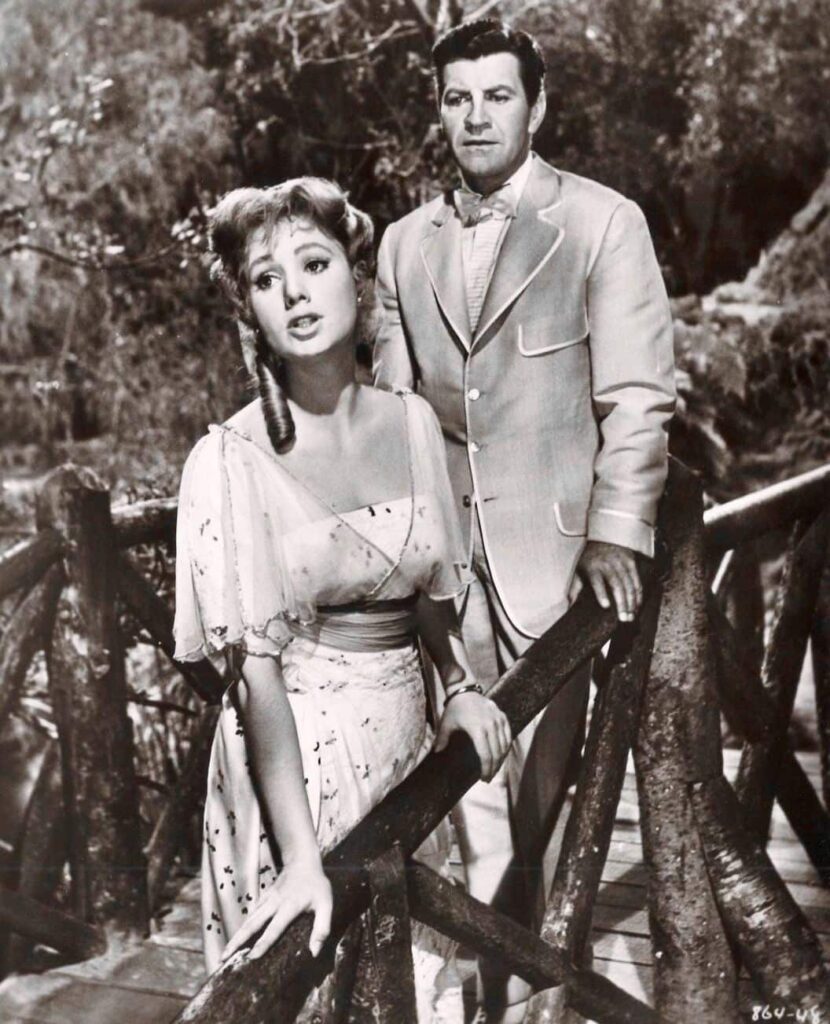
A Gentle Promise of Love’s Arrival
The airwaves in the early 1960s were thick with the sound of youthful rebellion and burgeoning rock and roll, yet amidst that electric clamor, a simpler, more heartfelt melody often found its way to the top of the charts and, more importantly, into the collective memory. One such timeless piece is the enchanting ballad “Till There Was You,” performed by Shirley Jones and Robert Preston for the 1962 film adaptation of the Broadway hit, “The Music Man.” While the movie’s soundtrack, released on Capitol Records, was immensely popular, the track “Till There Was You” itself had a unique journey. Unlike some of the show-stopping numbers that immediately dominated singles charts, the enduring power of this particular rendition lay more in the success of the original Broadway cast album and the 1962 movie soundtrack album, which both achieved Platinum status and saw the soundtrack peak at a respectable position on the Billboard 200 chart, firmly securing its place as a cherished standard.
The Quiet Power of River City’s Love Song
To truly appreciate “Till There Was You,” one must journey back to the mythical, idyllic, and slightly stifling town of River City, Iowa, in 1912—the setting of Meredith Willson’s magnificent 1957 musical, “The Music Man.” The song serves as the profound emotional cornerstone of the entire production. It’s the moment when the cynical, fast-talking con man, Professor Harold Hill, finally has his meticulously constructed defenses crumble under the sincere, transformative power of love. He is, to put it plainly, a man who has never experienced genuine, uncalculating affection; he has seen only marks, audiences, and quick escapes.
The story behind the song is beautifully simple: it’s the confession of an awakened heart. Marian Paroo, the town’s prim, skeptical, yet deeply romantic librarian (played with luminous grace by Shirley Jones in the film), has become the object of Harold Hill’s (the irrepressible Robert Preston) unexpected and, ultimately, genuine devotion. Initially, he saw her only as an obstacle to his scam, but her quiet intelligence and integrity chipped away at his façade. “Till There Was You” is his soul’s testimony, a quiet yet seismic realization that his life, before her, was a landscape of emptiness. The lyrics, with their elegant simplicity, paint a picture of a world devoid of color and music—a world “mute” and “incomplete”—before the arrival of this one, perfect person. It speaks of a longing one didn’t even know they possessed until the desire was fulfilled.
A Melody of Nostalgia and Pure Sentiment
For those of us who came of age during or shortly after the musical’s rise, this song is more than a tune; it’s a time capsule. It evokes memories of Sunday afternoons, of the soft glow of a television set during a family viewing, or perhaps the crackle of a phonograph playing the “Music Man” soundtrack on a shared evening. Shirley Jones’s voice, crystalline and warm, paired with Robert Preston’s uniquely theatrical and deeply heartfelt delivery—he was, after all, the definitive Harold Hill from Broadway—imbues this particular version with a gravitas that subsequent covers, however famous, often lack. While the Broadway cast album features Barbara Cook, the chemistry and visual context of Jones and Preston in the film made their version the one that truly imprinted itself on the global consciousness.
What makes “Till There Was You” so timeless and, frankly, so deeply moving, especially for an older generation, is its pure, uncomplicated meaning. It’s not about fleeting passion or dramatic conflict; it’s about completion. The song is a masterful, understated declaration that love is the necessary element that brings beauty, song, and light into an otherwise ordinary existence. It’s the sound of finding one’s other half, the gentle, profound shock of discovering the music that was missing. It is a nostalgic echo of a time when romance on the screen could be quiet, sincere, and utterly transformative—a moment of true, uncomplicated sentiment that continues to resonate with its beautiful, simple truth.